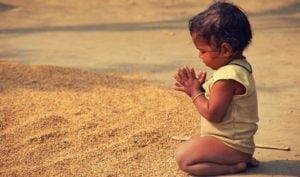Source: Courtney E. Ackerman, MA / PositivePsychology.com
Each morning, a new year begins. We can choose special days, such as holidays or birthdays, to track the beginning. Or we can use inspiring days and begin anew. Rituals that allow us to enjoy each day and live in each event richly and fully make the day bright and happy. This happiness opens our senses and allows us to perceive with the attitude we choose. If we allow, the Universe is ready to shower us with blessings for the coming times.
The key to unlocking such wonders is gratitude.
The western education system and most corporate jobs like to drive us toward productivity and money. There is no pause for gratitude. We are taught to look toward the sky and aim for higher successes. If we are professionals, we must strive to be at the top of the field, famous and awarded. We must have money to show we have succeeded in life. The powers that run society want us to pull ourselves up toward their ideals because they will then not have to exert effort in pulling the crowd along. Our race fuels sales and tax revenue, which ultimately goes into the pockets of the We buy into the race when we look at others for our sense of self.
When we choose to anchor on gratitude for what we already have, we detach from the incantations of society. When we make choices from the happiness of gratitude we move forward in directions of peace and connection. Rather than comparing one's self with others, when we choose gratitude, we become acutely aware of the importance of others in our successes.
How do we begin on the road to daily gratitude, when we are accustomed to criticism and non-acceptance? One effective method that combines order with gratitude is to end each day with moments of recollection. Alone or with others, we can recall three things accomplished that day and three things to be grateful for. We can list three things to do the following day that can be completed without much difficulty and recalled the next day as successes. These can include one step of a larger task that needs to be done and is being avoided. The following evening's gratitude time can summarize what was accomplished. When those three tasks are done, the body and mind align in celebration of having done what was needed. Over time, the three tasks can become a guide for the mind to affirm to the body what it can do when it sets out together. Self-esteem blooms. On days of unpredictable events, we can come home grateful to have survived the tumult.
Source: mindsoother.com / Danna Markson, LCSW
Ayurveda whispers to include rituals each day that allow for rest and recall. In these moments, we can recapture the day's events and have gratitude for our memory. Over time, the habit of gratitude develops and our hearts become embedded with fullness for the things we have. The Universe then creates the things we need. Opportunities seems to arise magically, and problems solve. The magic is in the attitude of hope and a mindset that only accepts positive outcomes. If we see everything in the world as either a blessing or a lesson, we cease to suffer.
Ayurveda says that suffering dulls the senses. When the senses are dull, we cannot see the opportunities coming, and we miss them. When the senses are dull, the actions are dull. Things do not connect. We do not accomplish the things that would make our dreams come true. When we have chronic gratitude, our mind, senses, and actions align to fulfill our ideals. Competition and empty successes for non-living corporations or material ideals cease to be important.
“Cultivate the habit of being grateful for every good thing that comes to you, and to give thanks continuously. And because all things have contributed to your advancement, you should include all things in your gratitude.” — Ralph Waldo Emerson
This is the third of a five-part series on the ancient wisdom tradition and logic of the ayurvedic approach to being human.
week 87. TheSouthAsianTimes
Download the .pdf version of this column by clicking on the image.
Dr. Bhaswati Bhattacharya is a Fulbright Specialist 2018‐2023 in Public Health. She serves as Clinical Asst Professor of Family Medicine in the Department of Medicine at Weill Cornell Medical College in New York, NY.
Her bestselling book Everyday Ayurveda is published by Penguin Random House. To order an autographed copy, write to bhaswati@post.harvard.edu.
www.drbhaswati.com








Beautifully said 🙏 thankyou for sharing this valuable article . I would also love to share some of my experiences related to this , pertaining to restorative and naad yog . 🙏❤️
Heartfelt thanks for your words of wisdom that fill my heart and soul. I love reading your posts and articles as I navigate through life and need more than ever your guidance. I just had my first of three chemo treatments for stage 1-b clear cell ovarian cancer. I am grateful for early diagnosis and trust the process I’ll do well. Gratitude is what Paves the way for happiness and love. I have your new book , thank you.
Blessings and heartfelt hugs of love,
Audrey Carlson
Audreyabc77@gmail.com